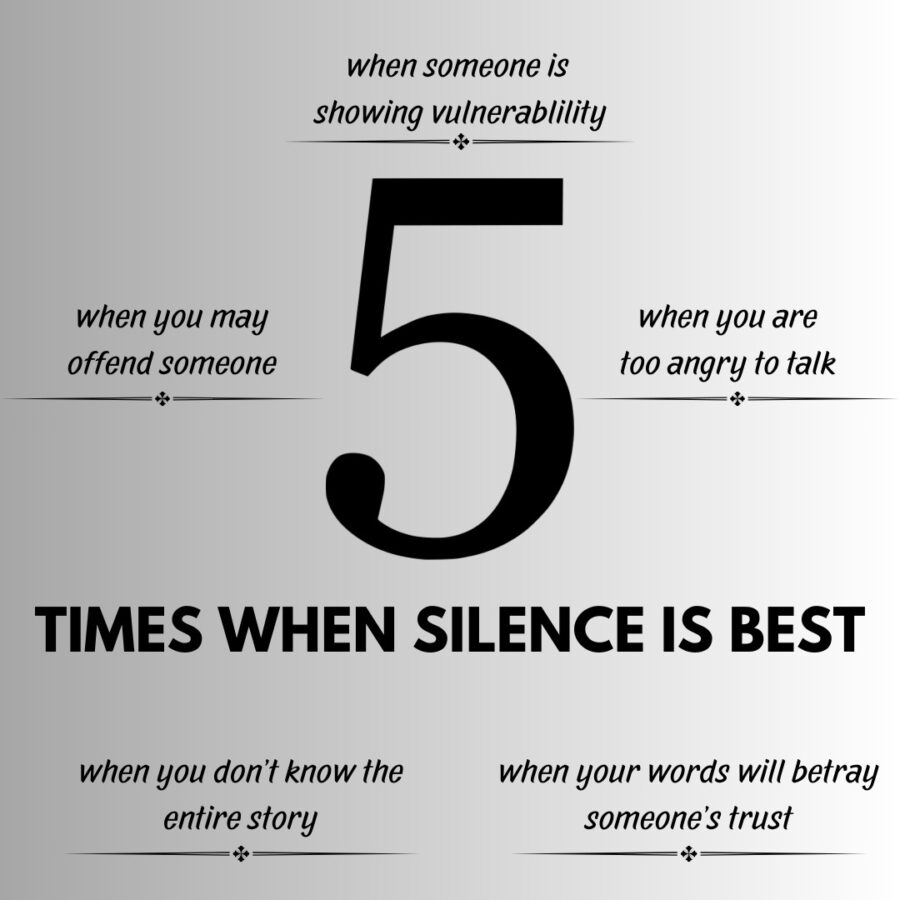
Screaming at the kids in a moment of frustration.
Sarcastically criticizing your spouse under the guise of joking around.
Interjecting when someone is sharing a difficult personal story.
Gossiping about a person’s decisions.
The aforementioned scenarios are times in which silence can be far more powerful and appropriate than words. Knowing when to bite your tongue can prevent misunderstandings, preserve relationships, and promote connections. Here are five instances when staying silent is a mindful decision.

5 Times When Silence Is Best
1. When You Are Too Angry to Talk
Anger is a powerful human emotion that can trigger impulsive and hurtful reactions. As.a result you might say things you don’t mean, using words you might regret. Staying silent or disengaging from a situation when emotions are running high allows you to process your feelings and respond more thoughtfully once feelings abate. By avoiding abrupt reactions, you can prevent escalation and establish respectful communication.
2. When You May Offend Someone
There are times when your opinion, joke, or comment might unintentionally offend someone else. If you get an impression that your words could be hurtful or harmful, it may be wiser to withhold from speaking. Silence in these moments can avoid damaging relationships and help you avert unnecessary conflict.
3. When Someone is Showing Vulnerability
When someone opens up and shares their deepest thoughts, feelings, or struggles, it is valuable when you listen more than you speak. Often, people are not seeking advice or opinions in these moments—they just want someone who will listen without judgment. Offering silence in these situations shows empathy and respect, allowing the person to feel acknowledged and understood.
4. When You Don’t Know the Entire Story
Making assumptions or jumping to conclusions about a situation without all the facts can lead to false judgments and misunderstandings. Remaining quiet and listening allows you to gather more information and gain more insight before forming an opinion or making a decision. It is more prudent to listen, observe, and ask questions rather than speak prematurely.
5. When Your Words Will Betray Someone’s Trust
Trust is fragile, and once broken, it can be difficult to repair. If speaking out would include divulging another person’s secret or betraying their confidence, it is best to stay silent. Maintaining someone’s trust is a sign of loyalty and integrity, and silence in this circumstance shows that you value the relationship.
In each of these situations, silence is a tool of wisdom. It gives you the opportunity to reflect, protect others, and foster deeper, more meaningful connections. Knowing when to stay quiet can often say more than words ever could.
“Watch your words diligently. Words have such great power to bless or to wound. When you speak carelessly or negatively, you damage others as well as yourself. “- Sarah Young, Jesus Calling


